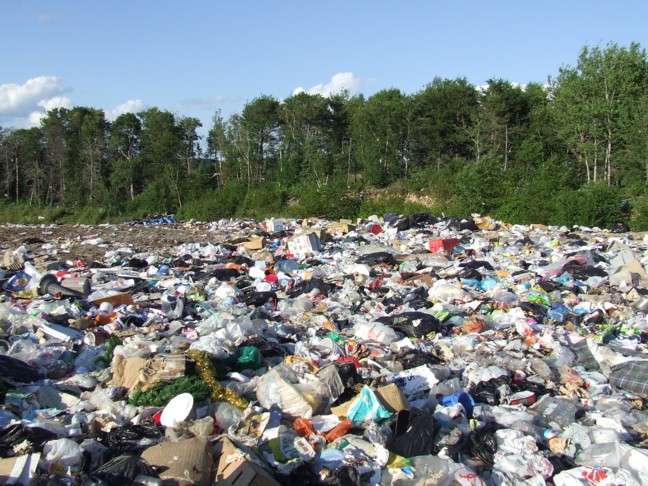|
Waste Implementation Programme
The Waste Implementation Programme (WIP) was the UK Government's response to the package of strategic measures recommended by the Strategy Unit "Waste Not, Want Not" report published in 2002. The WIP was the route map of the Department for Environment, Food and Rural Affairs, aimed at delivering the action required to meet the UK's legally binding targets under Article Five of the EU Landfill Directive related to reducing levels of biodegradable waste that are landfill A landfill is a site for the disposal of waste materials. It is the oldest and most common form of waste disposal, although the systematic burial of waste with daily, intermediate and final covers only began in the 1940s. In the past, waste was ...ed. The UK's targets were: *By 2010 reduce biodegradable municipal waste landfilled to 75% of that produced in 1995 *By 2013 reduce biodegradable municipal waste landfilled to 50% of that produced in 1995 *By 2020 reduce biodegradable municipal waste landfilled to 3 ... [...More Info...] [...Related Items...] OR: [Wikipedia] [Google] [Baidu] |
Department For Environment, Food And Rural Affairs
The Department for Environment, Food and Rural Affairs (Defra) is a Departments of the Government of the United Kingdom, ministerial department of the government of the United Kingdom. It is responsible for environmental quality, environmental protection, food production and standards, agriculture, fisheries and rural communities in the entire United Kingdom. Memorandum of understanding, Concordats set out agreed frameworks for cooperation, between it and the Scottish Government, Welsh Government and Northern Ireland Executive, which have devolved responsibilities for these matters in their respective nations. Defra also leads for the United Kingdom on agricultural, fisheries and environmental matters in international negotiations on sustainable development and climate change, although a new Department of Energy and Climate Change was created on 3 October 2008 to take over the last responsibility; later transferred to the Department for Business, Energy and Industrial Strategy ... [...More Info...] [...Related Items...] OR: [Wikipedia] [Google] [Baidu] |
Landfill Directive
The Landfill Directive, more formally Council Directive 1999/31/EC of 26 April 1999, is a European Union directive which regulates waste management of landfills in the European Union. It was to be implemented by EU Member States by 16 July 2001. Directive (EU) 2018/850 amended the 1999 directive with effect from 5 July 2020. The Directive's overall aim is "to prevent or reduce as far as possible negative effects on the environment, in particular the pollution of surface water, groundwater, soil and air, and on the global environment, including the greenhouse effect, as well as any resulting risk to human health, from the landfilling of waste, during the whole life-cycle of the landfill". This legislation also has important implications for waste handling and waste disposal. Outline The Directive is applicable to all waste disposal sites and divides them into three classes: * landfills for hazardous waste * landfills for non-hazardous waste * landfills for inert waste Waste d ... [...More Info...] [...Related Items...] OR: [Wikipedia] [Google] [Baidu] |
Biodegradable Waste
Biodegradable waste includes any organic matter in waste which can be broken down into carbon dioxide, water, methane, compost, humus, and simple organic molecules by micro-organisms and other living things by composting, aerobic digestion, anaerobic digestion or similar processes. It mainly includes kitchen waste (spoiled food, trimmings, inedible parts), ash, soil, dung and other plant matter. In waste management, it also includes some inorganic materials which can be decomposed by bacteria. Such materials include gypsum and its products such as plasterboard and other simple sulfates which can be decomposed by sulfate reducing bacteria to yield hydrogen sulfide in anaerobic land-fill conditions. In domestic waste collection, the scope of biodegradable waste may be narrowed to include only those degradable wastes capable of being handled in the local waste handling facilities. To address this, many local waste management districts are integrating programs related to sort ... [...More Info...] [...Related Items...] OR: [Wikipedia] [Google] [Baidu] |
Landfill
A landfill is a site for the disposal of waste materials. It is the oldest and most common form of waste disposal, although the systematic burial of waste with daily, intermediate and final covers only began in the 1940s. In the past, waste was simply left in piles or thrown into pits (known in Archaeology, archeology as middens). Landfills take up a lot of land and pose environmental risks. Some landfill sites are used for waste management purposes, such as temporary storage, consolidation and transfer, or for various stages of processing waste material, such as sorting, treatment, or recycling. Unless they are stabilized, landfills may undergo severe shaking or soil liquefaction of the ground during an earthquake. Once full, the area over a landfill site may be Landfill restoration, reclaimed for other uses. Both active and restored landfill sites can have significant environmental impacts which can persist for many years. These include the release of gases that contribute to ... [...More Info...] [...Related Items...] OR: [Wikipedia] [Google] [Baidu] |
New Technologies Demonstrator Programme
The New Technologies Demonstrator Programme is a scheme part of Defra's Waste Implementation Programme, New Technologies Workstream, to demonstrate advanced solid waste processing technologies in England. A pot of £30million was allocated to fund 10 demonstrator projects with the project being headed by Dave Brooks at Defra. The scheme is not on schedule for the ambitious targets that were initially set out by Defra, however 9 projects out of the initial 10 are now projected to be operational by April 2009, over 2 years behind schedule. The scheme The scheme initially was allocated £32 million, of which £2 million was to help fund research and development into waste technology. The scheme for the distribution of the main £30 million pot commenced in 2004 and was originally split into two rounds: * ROUND 1: 5 demonstrator projects in operation by 31 December 2005 * ROUND 2: 5 demonstrator projects in operation by 31 December 2006 Their project had a huge response for the ... [...More Info...] [...Related Items...] OR: [Wikipedia] [Google] [Baidu] |

